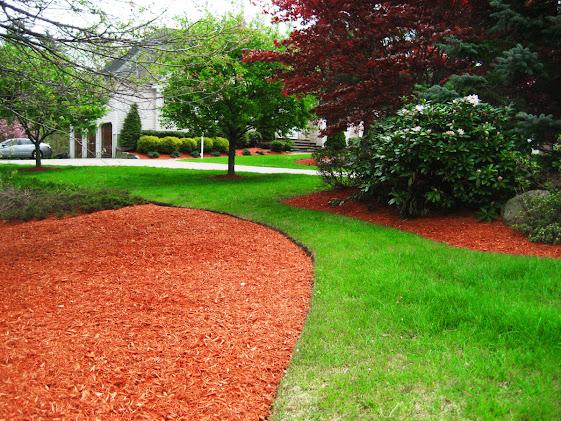Garden mulch helps in retaining moisture in the suppress weeds, soil, prevent frost in winter, keep the soil cool, and make your garden more attractive. Garden mulch enhance the structure of the soil, nutrient-holding capacity, and drainage capacity when they decompose.
Different types of Organic Mulch:
- Shredded Leaves
- Bark, Chipped, or Shredded
- Straw
- Newspaper
- Grass Clippings
Organic mulches decompose, and you need to replace them, but in a specific manner. It enhances the structure of the soil and organic content. The woodier and dryer decomposes slower and gives fewer nutrients to the soil.
Let’s take a complete tour of different types of organic mulch.
As we listed earlier about the different types, get some more insights into the list.
- Shredded Leaves
Nature’s favourite, shredded leaves can be used as mulch wherever you want, and you don’t even have to pay for it. It’s easy to entice earthworms to your garden soil with shredded leaves. Many gardeners don’t like leaves in their garden, and they are not appropriate for a formal location. So don’t spread the layer of shredded leaves in the spring before the plants could even spread out properly, the mulch would blend in the view in no time. Shredded leaves can be the perfect choice for woodland gardeners, and if you spread a layer on your vegetables in falls, it will start decomposing overwinters.

- Bark, Chipped, or Shredded
This garden fertilizer is highly used around the shrubs, trees, and garden beds where you don’t do a lot of diggings, such as front foundation plantings and walkways.
The only drawback of these woody mulches is that they don’t mix well in the soil and can be a hassle to remove them from the path of new plants. However, they last longer than any fine organic mulchers.
- Straw and Hay
These are the popular mulches for vegetation in the garden. Straw and hay can easily keep the soil and soil-borne diseases from splattering on lower plant leaves and make the paths less murky. Straw decays slowly and will last the entire season when plants grow fuller. It also provides a better home to spiders and other insects that will move in and help the pest population to control. It is easy to rake them up or work right into the soil when it is time to plant a new vegetable.
- Newspaper
This is the most popular method to mulch your garden. Newspapers have organic dyes, especially when they are black and white. Shredded newspaper can be used for the entire year to keep plant roots moist and healthy while shipping. Multiple layers of a newspaper also have good moisture retention capacity, and they act as organic mulches and surprising weeds & regulating soil temperature. They are also good for existing grass that needs a quick garden bed.
- Grass Clippings
This is a mixed bag of goodness, best suited for remote areas of the garden where you need to overpower weeds. Grass clippings like green plant debris with extensive water content decompose quickly, and, in this process, they get slimy with unbearable odour.
Bottom line,
So, use this garden Mulch with discretion. Grass clipping also mats down and doesn't allow water to cross.
